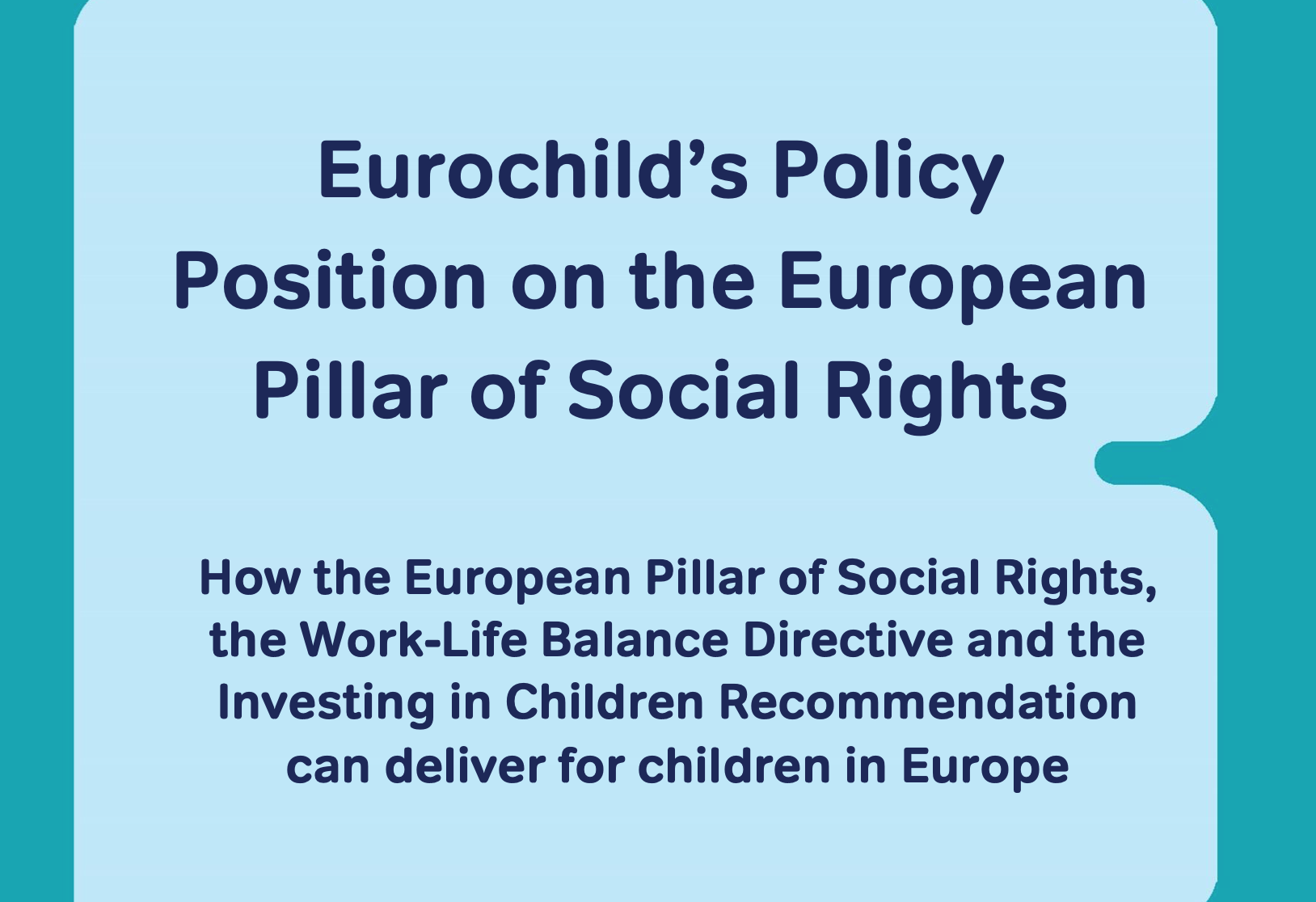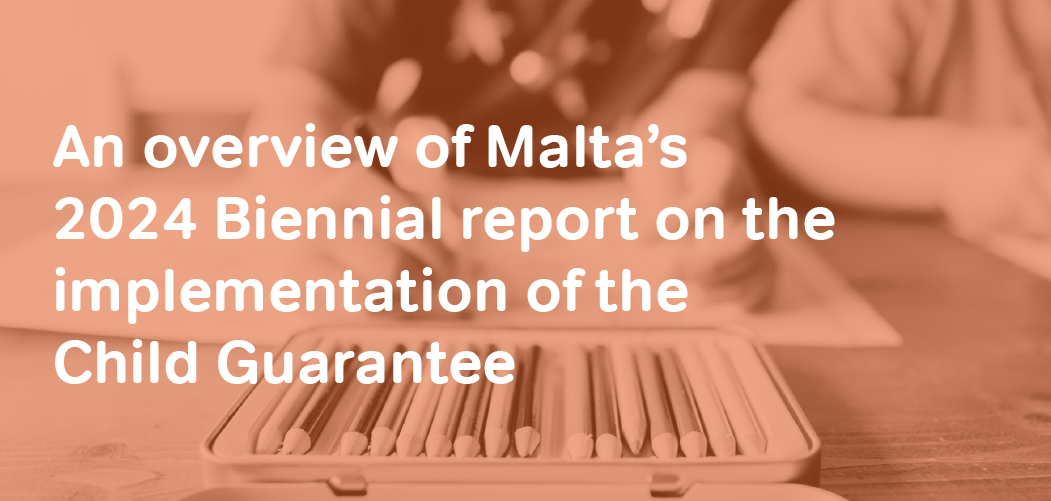Eurochild’s Policy Position on the European Pillar of Social Rights
Announced in 2015 and published on 26 April 2017, the European Pillar of Social Rights is the European Commission’s initiative that sets outprinciples and rights for fair and well-functioning labour markets and welfare systems in Europe. With this initiative, the European Commission aims to give the EU a ‘social triple-A’ rating, and rebalance social and economic policies.
It offers an important opportunity to reflect on how investing in children can contribute to a more inclusive and prosperous Europe. Eurochild welcomes the European Commission’s attempt to put social inclusion front and centre of its vision for the future of Europe.
The package on the Social Pillar also includes a first ever proposal for a comprehensive EU directive to improve work-life balance of parents and carers and an assessment of the 2013 Recommendation on ‘Investing in children: breaking the cycle of disadvantage’.
Eurochild’s policy position outlines the key opportunities and challenges for children that will be impacted by this package.
Opportunities:
The Social Pillar includes a number of references which can help strengthen policies, at EU and national levels, on investing in children and young people.
Eurochild welcomes the explicit reference to the quality of healthcare and the importance of prevention and that child poverty is recognised as one of the 20 principles of the European Pillar.
The Pillar reiterates how children have a right to affordable, good quality early education and care. It also addresses youth unemployment and skills by explicitly recognising young people’s right to be supported in their job search, through continued education, apprenticeship or traineeship.
We also welcome the recommendation that EU Member States should develop “national strategies on child participation” to involve children in all actions and decisions that concern them.
The Recommendation on Investing in Children which establishes the Social Pillar, opens with a reference to Article 3 of Treaty on the European Union recalling that an EU objective is to “promote the protection of the rights of the child”.
Our concerns
Without a clear implementation plan, the principles of the Social Pillar will be difficult to turn into actions with outcomes on the lives of children. Having a roadmap to set specific objectives, key milestones and a timeline could have helped boost implementation.
Moreover, we would like to point out that EU Member States must be reminded that the Social Pillar sets ‘minimum’ standards, and as such, they must use the Social Pillar as a guide to apply social rights in practice without cancelling previous commitments and treaty obligations.
Our key messages
1. Focus policies on the youngest in society
2. Define a clear implementation plan that ensures longevity for the Social Pillar
3. Place the social agenda within an overarching European policy framework
4. Match post-2020 EU funding to the Social Pillar
5. Empower and consult with children and civil society working with children





